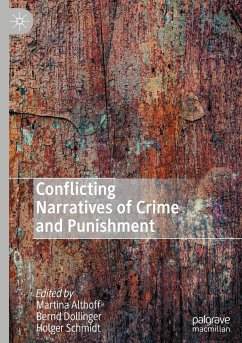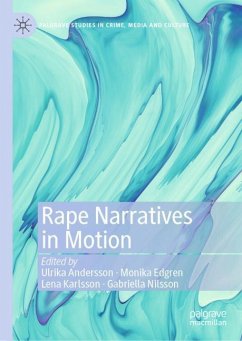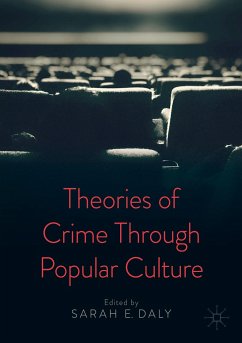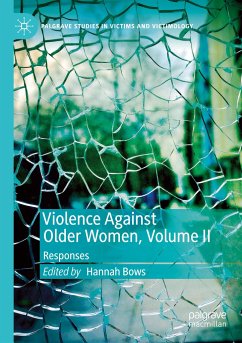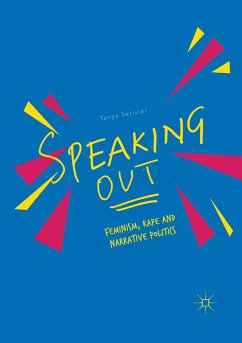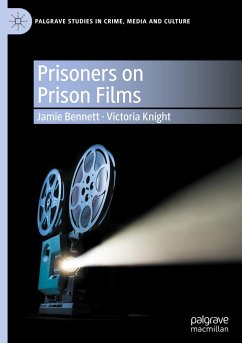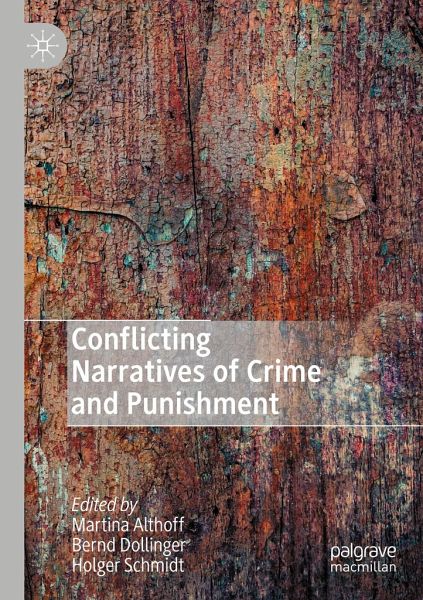
Conflicting Narratives of Crime and Punishment
Versandkostenfrei!
Versandfertig in 6-10 Tagen
121,99 €
inkl. MwSt.

PAYBACK Punkte
61 °P sammeln!
This book illustrates the importance of conflicting narratives in understanding and dealing with crime, based on a variety of cutting-edge research. Offenders tell stories about crime and punishment, as do policemen, judges and defence lawyers, but so do politicians and the media. Each tells them very differently and only some stories are believed, while others are rejected as implausible leading to conflict. This book explores how these conflicts are carried out and what relationships exist between (often unquestioned) master narratives and (sometimes loud, sometimes silent) counter-narrative...
This book illustrates the importance of conflicting narratives in understanding and dealing with crime, based on a variety of cutting-edge research. Offenders tell stories about crime and punishment, as do policemen, judges and defence lawyers, but so do politicians and the media. Each tells them very differently and only some stories are believed, while others are rejected as implausible leading to conflict. This book explores how these conflicts are carried out and what relationships exist between (often unquestioned) master narratives and (sometimes loud, sometimes silent) counter-narratives? These are questions of central importance for criminology which have thus far received little attention.
This edited collection is international and interdisciplinary in scope, providing empirical insights from such diverse contexts as (social) media, newspapers, comics, police interrogations, social and criminal justice settings, and museum exhibitions. By including contributions froma wide spectrum of academic disciplines and using different methodological approaches, it is of particular interest to students and researchers in criminology and sociology, as well as to scholars of socio-legal studies.
This edited collection is international and interdisciplinary in scope, providing empirical insights from such diverse contexts as (social) media, newspapers, comics, police interrogations, social and criminal justice settings, and museum exhibitions. By including contributions froma wide spectrum of academic disciplines and using different methodological approaches, it is of particular interest to students and researchers in criminology and sociology, as well as to scholars of socio-legal studies.





